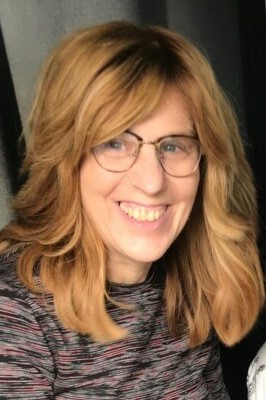Bypass the Mind, Reach the Heart

Studies point to the healing power of a grandparent-grandchild relationship for people with dementia
I
hen Kayla was in her early teens, her grandmother was diagnosed with Parkinson’s disease. Eventually, it grew to include dementia.
“In the beginning stages of her cognitive decline, I’d go over to visit and play Rummikub,” Kayla shares. “While we played, I would tell her about my day and what was happening in my life. Even though she didn’t really respond, I spoke with her as if she could.”
Kayla’s visit accomplished far more than she likely realized — for her grandmother, and for herself. Though modern medicine has yet to develop a cure for Alzheimer’s disease or any other form of dementia, recent studies point to the healing power of the grandparent-grandchild relationship.
According to the Women’s Healthy Aging Project in Australia, babysitting grandchildren may actually prevent Alzheimer’s disease by increasing brain function and memory. Research also shows that caring for grandchildren can help protect against depression, boost social connections, and keep older adults mentally sharp.
And it’s not only beneficial for the grandparent. According to a June 2016 study from Boston University, emotional closeness with a grandparent can help protect the grandchild from depression as well. Mindy grew up living in the same house as her grandmother, who suffered from dementia at the end of her life. “My grandmother gave me a sense of being loved and special,” Mindy says.
As the cognitive decline in dementia patients intensifies, it can chip away at the fullness of the grandparent-grandchild relationship. Yet experts agree that even though nothing will ever bring back the Saba or Savta the grandchildren once knew, there can still be important and meaningful ways to nurture the connection.
When Kayla’s grandmother was no longer capable of playing games, Kayla switched to visiting at nights. Sitting by her grandmother’s bedside, Kayla would sing “Hamalach Hagoel.” One night, she was unable to come. Her grandmother was having trouble falling asleep and eventually turned to her aide and asked, “Where is that girl?” Even though she had no idea who Kayla was, she clearly felt soothed by her singing.
Memory loss, or dementia, is not an inevitable consequence of the aging process, points out Zalman Kotzen, LCSW, director of geriatric services at Pesach Tikvah Inc., a major provider of mental health services for Brooklyn’s Orthodox Jewish community. Rather, it’s the result of an illness or an accident that has caused brain damage. Although considerable efforts are being made to find the cure for some of these conditions, especially Alzheimer’s disease, most cases of brain damage today unfortunately need to be regarded as permanent and irrevocable. That’s why the focus of treatment at Pesach Tikvah is on enhancing the patient’s mood.
“It’s a tremendous kindness and a show of love and respect when a grandchild can work on helping their grandparent feel happy, content, and safe,” Rabbi Kotzen says.
As the bridge between two generations, parents can play an important role — that of giving their children the necessary skills and support they need to navigate a relationship with a grandparent suffering from dementia.
(Excerpted from Family First, Issue 648)
Oops! We could not locate your form.














